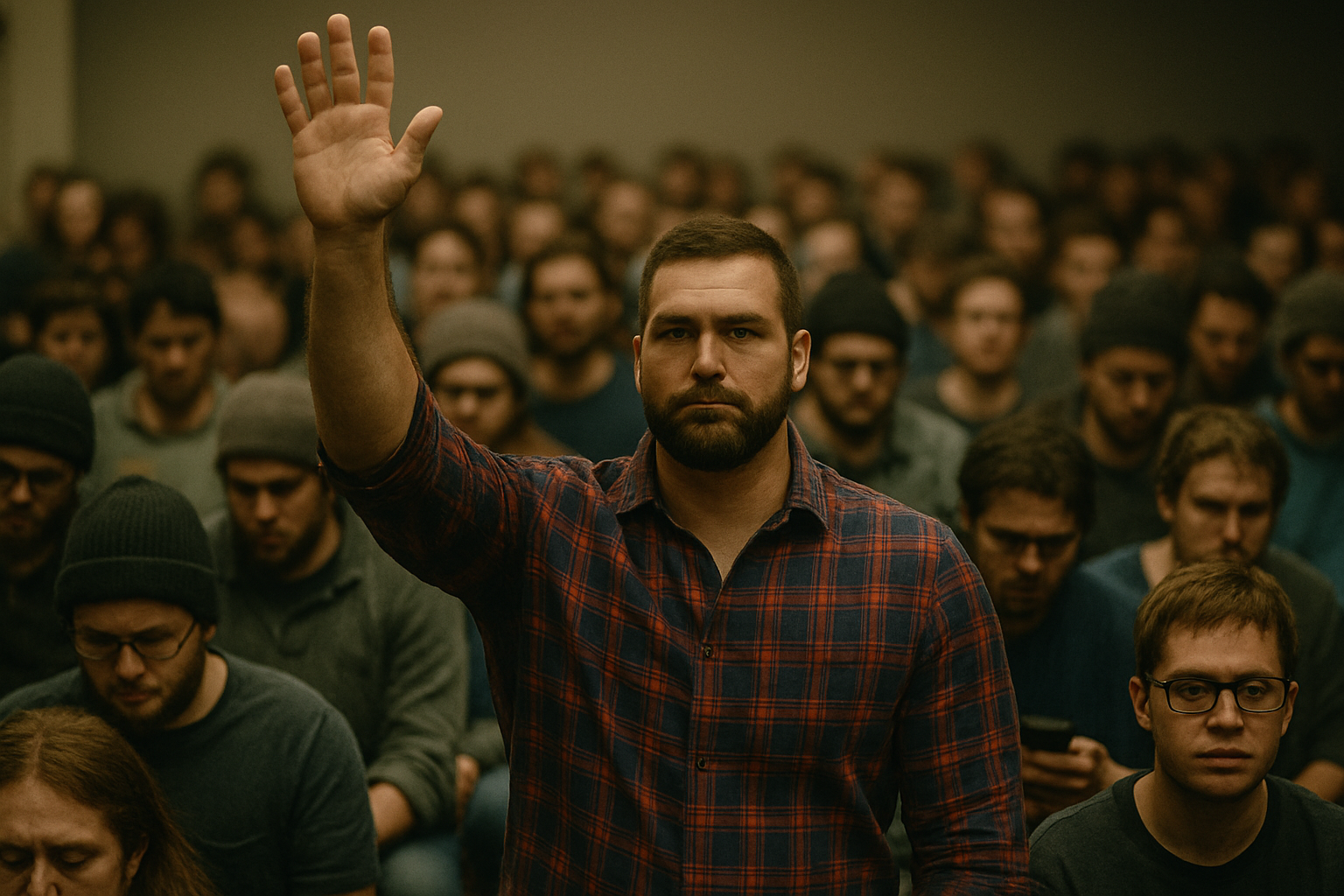There’s a quiet voice inside most men that says: “I just want to be respected.” It isn’t loud, and it isn’t whiny. It doesn’t demand parades or praise. It simply longs to know that what he builds, gives, or carries is seen. But somewhere along the way, modern culture managed to make that voice a source of embarrassment.
Men today are taught that wanting to be respected is a flaw. If you mention it, you’re insecure. If you expect it, you’re arrogant. And if you need it, you’re fragile. So what do most men do? They swallow it. They laugh it off. They act like it doesn’t matter—until it does. And by then, the damage is usually already done.
This is the hidden cost of being a natural man in a world that no longer values manliness.
Not About Ego—About Worth
It’s not about admiration.
It’s not about superiority.
It’s about being seen with weight.
Respect tells a man that his presence isn’t neutral. That it matters whether or not he shows up. That what he contributes carries weight, and that the people around him recognize it.
That recognition used to be woven into the rhythm of daily life. A firm handshake. A nod from a peer. The look of someone counting on you, because they knew you’d come through. These weren’t dramatic displays—they were quiet affirmations that a man was trusted and needed.
But now, men are expected to perform without acknowledgment. They’re told, “Do it because it’s right,” and yes, they do. But even doing the right thing in silence wears a man thin when it seems like no one even sees the effort. You keep showing up, but you start to wonder if it even matters.
That’s not vanity. That’s the natural human need to feel valued—not for how loud you are, but for how steady you’ve been.
The Lie of Disposability
Modern men are surrounded by subtle messages that say: “You are replaceable.”
At work, you’re just another name on the org chart. At home, your competence is expected, not appreciated. In society, you’re more likely to be criticized for existing than congratulated for enduring. And when you finally break down, you’re told to “man up” or “go talk to someone”—as if that will reverse years of being treated like you’re only valuable when needed, and invisible the rest of the time.
It’s not that men think they deserve worship.
They just don’t want to feel discarded.
That’s what stings the most.
Not rejection.
Not criticism.
Irrelevance.
Quiet Men, Quiet Damage
When a man is disrespected, it doesn’t always look like a blow-up. Most men won’t raise their voice about it. They won’t complain or storm out. They’ll just go quiet. They’ll do less. Not out of pettiness, but out of discouragement. The light dims behind the eyes. The shoulders stay strong, but something inside them slumps.
That’s when the slow damage begins. The kind that doesn’t bleed, but still wounds. A man can function for years like this—working, helping, providing—but inside, he’s becoming someone he never wanted to be: disconnected, cynical, or cold.
Not because he stopped caring.
But because he cared for too long without it being returned.
Where Does the Shame Come From?
It didn’t used to be shameful to want respect. It was expected. Taught. Modeled. Earning a reputation was part of becoming a man. You worked for it. You protected it. You lived in such a way that your name meant something when people said it.
But somewhere along the way, men were told that if they desired respect, they must be chasing power. That to want recognition meant you were compensating. That a man asking to be valued must secretly be weak.
This is a cultural reversal that cuts deep. Because what’s really being asked isn’t unreasonable. It’s not about putting a crown on your head. It’s about not having your work, your loyalty, your sacrifices shrugged off as expected, obligatory, or automatic.
A man who is never respected is not a man who becomes peaceful.
He becomes numb.
He stops offering his best, because his best was met with silence.
A World Starving for What Men Bring
Here’s the twist: even though culture shames men for wanting respect, it is starving for the very qualities that respect calls forth.
Men who feel respected stand taller. They serve more willingly. They lead more clearly. They care more. Not for show. But because they feel secure in the space they occupy.
Disrespected men retreat. Respected men rise.
When you strip a man of his dignity, you don’t get a docile creature. You get either an invisible ghost—or a bitter shadow of who he was meant to be.
So if we want a world with stronger men, better fathers, steadier workers, and deeper leaders, then we need to stop pretending that respect is a prize they should beg for.
It’s a return on investment.
It’s what keeps a man from quietly quitting on life.
And it should never have been a source of shame.
The Way Back
If you’re a man who’s carried this shame—who’s been told you shouldn’t want to be respected—then this is your reminder:
You’re not broken. You’re not weak. You’re not needy.
You are wired to want to matter.
You are right to want to be seen.
You are justified in wanting to be regarded with dignity.
And you don’t need the world’s permission to reclaim that.
Start living in a way that commands it—not with volume, not with force, but with calm, steady truth. Draw your line. Hold your frame. Speak plainly. Carry yourself as if you know your worth—because deep down, you do.
Respect isn’t something you should feel bad for wanting.
It’s something you should feel strong for expecting.
And when enough men stop apologizing for that, the world will start remembering what it forgot:
That respecting a good man isn’t a gift you give him.
It’s the only right response to what he brings to the world.
References and Citations
Farrell, W. (1993). The Myth of Male Power. Simon & Schuster. Brooks, D. (2022). Of Boys and Men. W. W. Norton & Company. Real, T. (2002). How Can I Get Through to You?. Scribner. Peterson, J. (2018). 12 Rules for Life. Random House. Kiselica, M. S., & Englar-Carlson, M. (2010). “Identifying, affirming, and building upon male strengths.” Journal of Counseling & Development, 88(4), 483–489. Levant, R. F., & Richmond, K. (2007). “A review of research on masculinity ideologies using the Male Role Norms Inventory.” The Journal of Men’s Studies, 15(2), 130–146.





